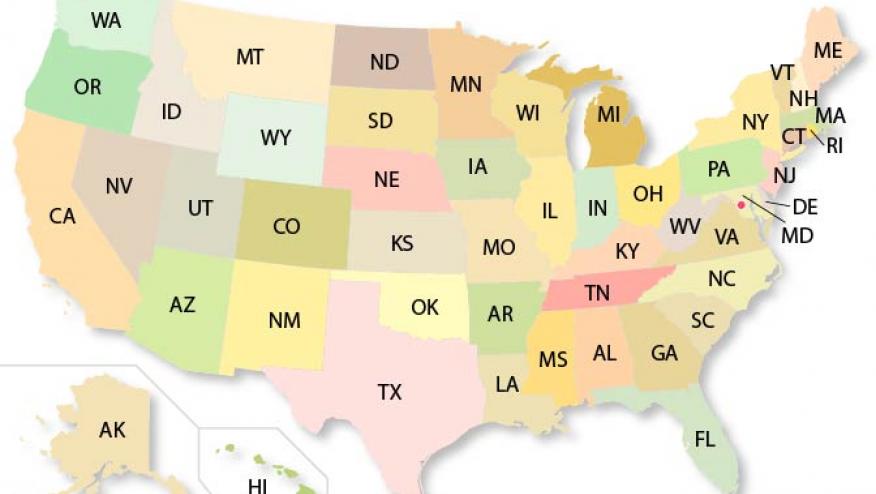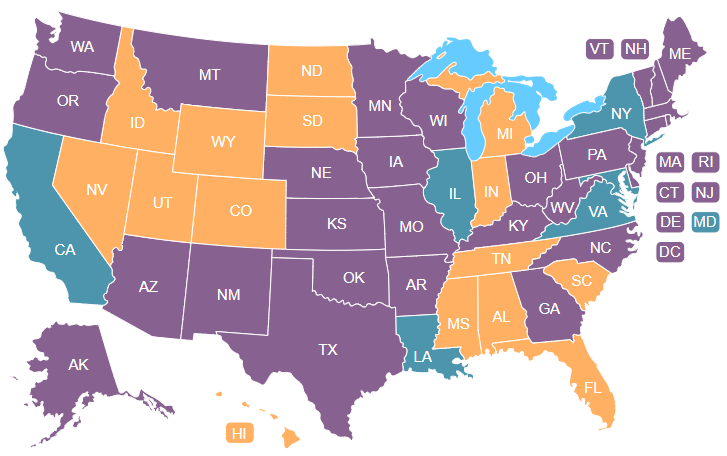ACR's State-by-State Report Cards for Rheumatic Disease Save

New report examines access, affordability, and activity and lifestyle factors in all 50 states and the District of Columbia, evaluating how easy it is to live with a rheumatic disease in your state. No state scored an "A" or "F", and only two states improved their 2018 grades.
The American College of Rheumatology (ACR) released its 2022 Rheumatic Disease Report Card: Raising the Grade on Rheumatology Care in America, updated from the first iteration published in 2018. Released during Rheumatic Disease Awareness Month (RDAM), the report examines how easy it is to live well with a rheumatic disease in the United States.
“This report card provides invaluable insight into the state of rheumatic disease care in our country. Rheumatic diseases can be debilitating, but they don’t have to be. It is critical that health care stakeholders and policymakers address the issues highlighted in this report and work together to raise the grade on rheumatology care throughout the country,” said Dr. Rebecca Shepherd, Chair of ACR’s Insurance Subcommittee.
Rheumatic diseases are painful autoimmune and inflammatory diseases that cause the immune system to attack a person’s joints, muscles, bones, and organs. More than 58.5 million American adults have been diagnosed with a rheumatic disease. There are also hundreds of thousands of children living with rheumatic disease, with an estimated 300,000 living with some type of juvenile arthritis.
The report card assigns each state letter grades according to its progress in 1) providing adequate access to rheumatology care, 2) ensuring rheumatic disease care is affordable, and 3) encouraging healthy lifestyle habits that ease the burden of rheumatic disease. Millions of people across the country living with chronic diseases like rheumatoid arthritis and lupus are finding it increasingly difficult to afford their prescription medications and access specialized healthcare due to a lack of insurance coverage, insurance practices like prior authorization, specialty tiers, step therapy and copay accumulators, pharmacy benefit manager (PBM) business practices that increase drug costs, and the growing shortage of practicing rheumatologists.

Most states received a “C” in this year’s report card, suggesting that significant action is needed to improve quality of life for Americans living with rheumatic disease. New York earned the highest grade, a “B” (111/150) and Wyoming earned the lowest grade, scoring a “D” (37/150). Only two states’ grades improved from 2018: Oklahoma and Louisiana. Oklahoma was the most improved, advancing from the lowest scoring state in 2018 to 20th in 2022. This was largely due to legislators taking steps to improve access and affordability in their state by passing legislation to limit insurer use of step therapy, ban state-regulated insurance plans from using copay accumulators, and promote PBM transparency. Louisiana is the only state to have an “A” in the affordability category and the only state besides Oklahoma to improve its grade.
The report card also highlights Texas as a noteworthy example of how states can reform prior authorization to improve access to rheumatology care. In 2021, lawmakers in Texas enacted a “Gold Card” law enabling physicians to bypass prior authorization requirements for certain services if they’re able to demonstrate they consistently meet the criteria for approval.
States that received poor access grades tended to have high rates of uninsured residents, a severe shortage of rheumatologists, and weak laws limiting restrictive insurer and PBM practices. More than half of all states received a “D” or “F” in the affordability category due to having no legislation addressing cost challenges. All but five states had at least one YMCA or National Recreation and Park Association sponsored arthritis intervention program that received federal funds from the CDC, which can reduce the pain and discomfort caused by arthritis while improving balance, building strength, and increasing one’s walking pace.
With rheumatic disease care in the United States at a critical juncture, the newly released report card is designed to support rheumatology providers, patients, and policymakers in their ongoing efforts to address the access, affordability, and lifestyle factors that contribute to this public health crisis.
The Rheumatic Disease Report Card is a project from the American College of Rheumatology (ACR) and its Simple Tasks™ public awareness campaign. Its development was guided by a national task force comprised of leading rheumatology researchers, clinicians, and policy experts.










If you are a health practitioner, you may Login/Register to comment.
Due to the nature of these comment forums, only health practitioners are allowed to comment at this time.